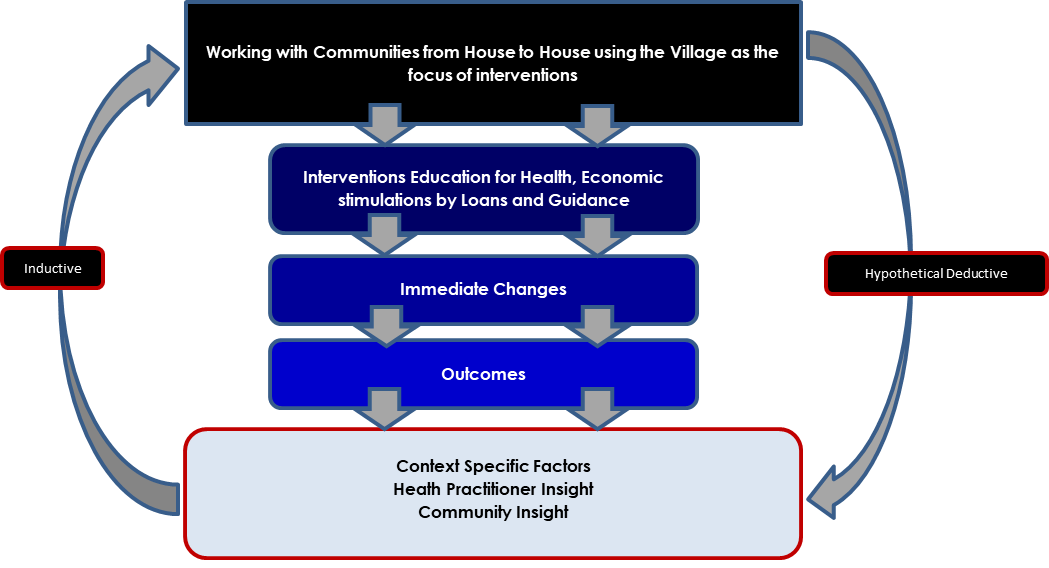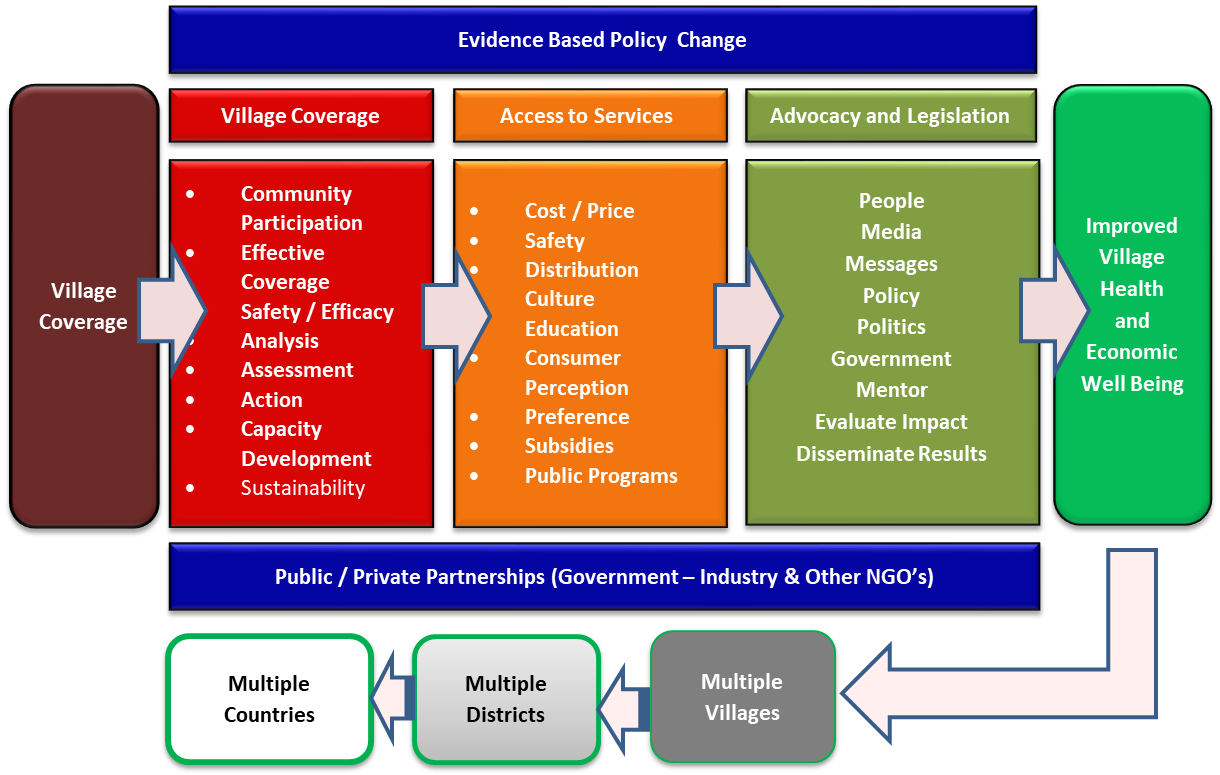
About us

We Work for "Optimizing Rural Health
as the primary focus"
Vijiji Tanzania builds upon its previous research and delves deeper into what influences health care access in rural settings. Additionally, the organisation embraces on the use of practical set of blueprints to optimize economic simulations for rural healthcare delivery in Tanzania. The organisation regularly uses its team of research experts to conduct interviews and focus groups discussions with community members.

Vision
A world where every rural community thrives through fair access to healthcare and economic opportunity.

"Vijiji Tanzania will remain an African Pride in the provision of healthcare services in remote and underserved areas, which face challenges related to "rural," demographics, funding, and geographic access, but remain resilient in meeting the health needs of their communities"

00
+Mission
Empowering rural communities through sustainable healthcare, economic education, and smart technology.
Vijiji Tanzania holds a rich report with striking findings that illustrate that access to quality care is much more complex than distance to services. Transparency, quality, and community engagement are also critical factors to the future of rural healthcare. One of the report's key messages is the importance of recognizing each community's individuality in the aggregates of Villages (Vijiji). This means the critical decisions needed to move forward and optimize rural healthcare delivery primarily lie in the following areas: community awareness, community engagement, community/management interface, redefining access, leadership, and finances in small units or aggregates of Villages (Vijiji).

00
+Children Helped

00
+Households Impacted

00
K +Volunteers

00
+Successful Projects

Governance, Working Theory & Structure
Governance
Board of Directors
Until otherwise varied by a special resolution passed at a General Meeting, the Board shall consist of a Steering Committee comprising of the Executive Director (Chair), Vice President (Vice Chair) who is the director of Finance, and 3-5 Honorary Advisory Members from Governments or Universities, international agencies authorized officers. The board must meet in every 6 months to discuss the Finance and progress of the NGO.
Honorary Advisory members from the Government Offices and Universities will be invited and voted by the steering committee made up by The Chair / Executive Director, Director of Finance, Program Lead for children, Program Lead for Health accountant lead and Office Administrator. The Board shall be the policy-making organ of Vijiji Tanzania and any policy passed by the Board shall be presented to the AGM for ratification.
The Executive Director
The Executive Director has the key role representation role with the highest position within an organization. He or she will be appointed by the board of directors and responsible for managing the organization's daily activities and directing Vijiji Tanzania to achieve its mission and vision. He or she will give leadership and management and holds many responsibilities that are essential in maintaining the sustainability of the organization.
The ED will work with an assistance of the Director of Finance and administration Economic Stimulation Programs Lead for Agricultural support and small business support and enterprises. The Health Program Lead will work and supervise the Child Protection and Parenting coordinator, Program Lead as well as the RMNCAH coordinator.
Program Lead for Health will report to ED ensures an appropriate programme or project management framework is in place, incorporating the Vijiji Tanzania Gateway Review Process if required from Child protection and Parenting Coordinator and RMNCAH Coordinator.
Program Lead for Child Protection and Parenting Coordinator will report to Health Lead and responsible for making sure that safeguarding records are kept securely according to the organization’s safeguarding policies and procedures. The child protection and Parenting Coordinator will deigns the Parent education programs, Advocate for quality children education and Advocate for the quality children nutrition and support
RMNCAH coordinator will provide technical assistance through supportive supervision and mentoring to providers to improve fistula prevention, screening, repair, and rehabilitation, in collaboration with Regional Health Management Team (RHMT) and Hospital Management Team.
Economic Stimulation Programs Lead will report to ED plans the economic development of target communities under the Vijiji models of Implementation. The lead will provide the market trends to identify potential threats and opportunities to the local economy of the beneficiaries of Vijiji Tanzania. Economic Stimulation Programs Lead will be supported by Agricultural Support Coordinator and Small Business and Enterprises.
Monitoring, Evaluation, Research and Learning Manager (MERL Manager) is expected to provide technical expertise to ensure efficient, effective and timely planning and execution of the various project data management and data use. Develop the research environment that uses the MERL principles processes and activities. MERL Manager will be assisted by MERL Coordinator. MERL Officer will support the MERL Coordinator to collect data that is linked to key indicators for the purpose of informing program activities and reporting to the donor, and supporting continuous evidence-based learning and adaptive management in the process.
Director of Finance and Administration (DFAD)
Directing and supervising the development, implementation and updating of policies and procedures, appropriate of processes and internal controls that meet operational and management needs, and ensuring compliance. DFAD will report to the ED (Chair) to will oversee the financial progress and get assisted by Administrator /HR (technical, human, and conceptual). Under the direction and supervision of the Administrator and HR, the Office Attendant is an responsible for maintaining a hygienic and hospitable working environment by keeping the offices clean and tidy and serving refreshments
Accountant
An Accountant of Vijiji Tanzania is responsible to guide the steering committee in making critical financial decisions by collecting, tracking, and correcting the organizational finances. He or she is responsible for financial audits, reconciling bank statements, and ensuring financial records are accurate throughout the year. He or she will be assisted by Assistant Accountant in sending invoices and ensure all transactions have been accounted for accurately and on time.
Field Officers
Field Officer works at or oversees external locations where Vijiji Tanzania program activities occur. Field Officer responsibilities include making field visits and ensuring Vijiji Tanzania endeavors and work plans in the communities are successful. Field Officers may work under the instruction of coordinators’ work plans and Program Leads.

Working Theory
The core design of Vijiji Mission is cared by the Vijiji Theory that embraces research and clinical practice and community support to offer the continuum of health serves in the rural areas along which the skilled professional should move with ease in circular fashion.
Not only are they are related, but they are each essential to health education, health behavior and economics with outcome requiring another intervention. Vijiji Theory and research is not be solely the province of interventions but rather continuation of academic deductive findings in community interventions that guides inductive approaches from practitioners and community perspectives.
Circular Changes Vijiji Theory
The Circular Changes Vijiji theory takes into account specific community factors to inform the changes these are mainly grouped into Health Practitioners insights and Community insights. There is a tension between these components that one must navigate continually to produce inductive change of Theory. Circular Changes Vijiji emphasizes to produce changes while working with the communities as the hypothetical deductive methods to guide interventions that will have to be improved through Specific Community factors, Practitioners insights and Community insights.
Vijiji Tanzania Understand the practice enriches many village transformations by their dynamic interactions through Vijiji Theory (Vijiji model).
The authors of Vijiji Theory examine cyclical changes in light of their interventions and their applicability. By embracing the Evidence Based Policy Change agenda Vijiji Tanzania believes in Village coverage, Access to services as well as Advocacy and Legislation that will transform health status and economic wellbeing of the community villages from single unit village to multiple villages, districts and countries. To make the transformation more efficient Evidence bases policy change must be embraced with Public and Private Partnership and wherever possible other NGO to come into play.
The Implementation Concept of Vijiji Theory
Vijiji believes that relationships among theory, research, and practice are not simple or linear. The larger picture of health improvement and disease reduction is better described as a cycle of interacting types of endeavors, including fundamental research (research into determinants, as well as development of methodologies), intervention research (research aimed toward change), surveillance research (tracking population-wide trends, including maintenance of change), and application and program delivery.



Our Team Members

Benard Mbwele
Executive Director

Sandy McGunegill
Community Health Advisor

Mpoki S. Kaminyoge
Data Scientist

Thomas Alon Saida
Technical Data Manager

Magdalena Isaac Mtoni
Development Program Manager

Nicodemus Emmanuel Mwampashi
Digital Systems Expart

Dr. Albert Isaya Mwanga
Regional Manager, Kilimanjaro
Our Impact in Their Words
Through their economic simulations, our local clinic now runs more efficiently.
We can serve more people with fewer resources.

Dr. Ruth N.
Community Health Officer
The health outreach camps changed my family’s life.
My wife received prenatal care right here in the village.

Said A.
Mbalizi
They don’t just bring services — they listen to our needs.
The programs truly reflect what our community asked for.

Joseph K.
Kyela
Thanks to Vijiji Tanzania, my children received medical care for the first time in years.
We now have hope and support in our village.

Fatuma S.
Uyole

Frequently Asked
Questions.
What does Vijiji Tanzania do?
We work to improve rural health systems by integrating maternal care, WASH, nutrition, and economic education. Our approach empowers local communities through data-driven programs, community health training, and access to critical services.
How do you select communities to support?
We prioritize underserved rural areas with limited access to healthcare and infrastructure. Community engagement, data from local health authorities, and research partnerships help us identify where the need is greatest.
How can I support or get involved?
You can support our work by donating, volunteering, or partnering with us. Every contribution helps fund training for health workers, improve sanitation systems, or support maternal and child health outreach.
How do you ensure transparency and impact?
We rely on evidence-based practices, ongoing monitoring, and community feedback. Our programs are regularly evaluated to measure health outcomes, and we publish reports to maintain full transparency.





